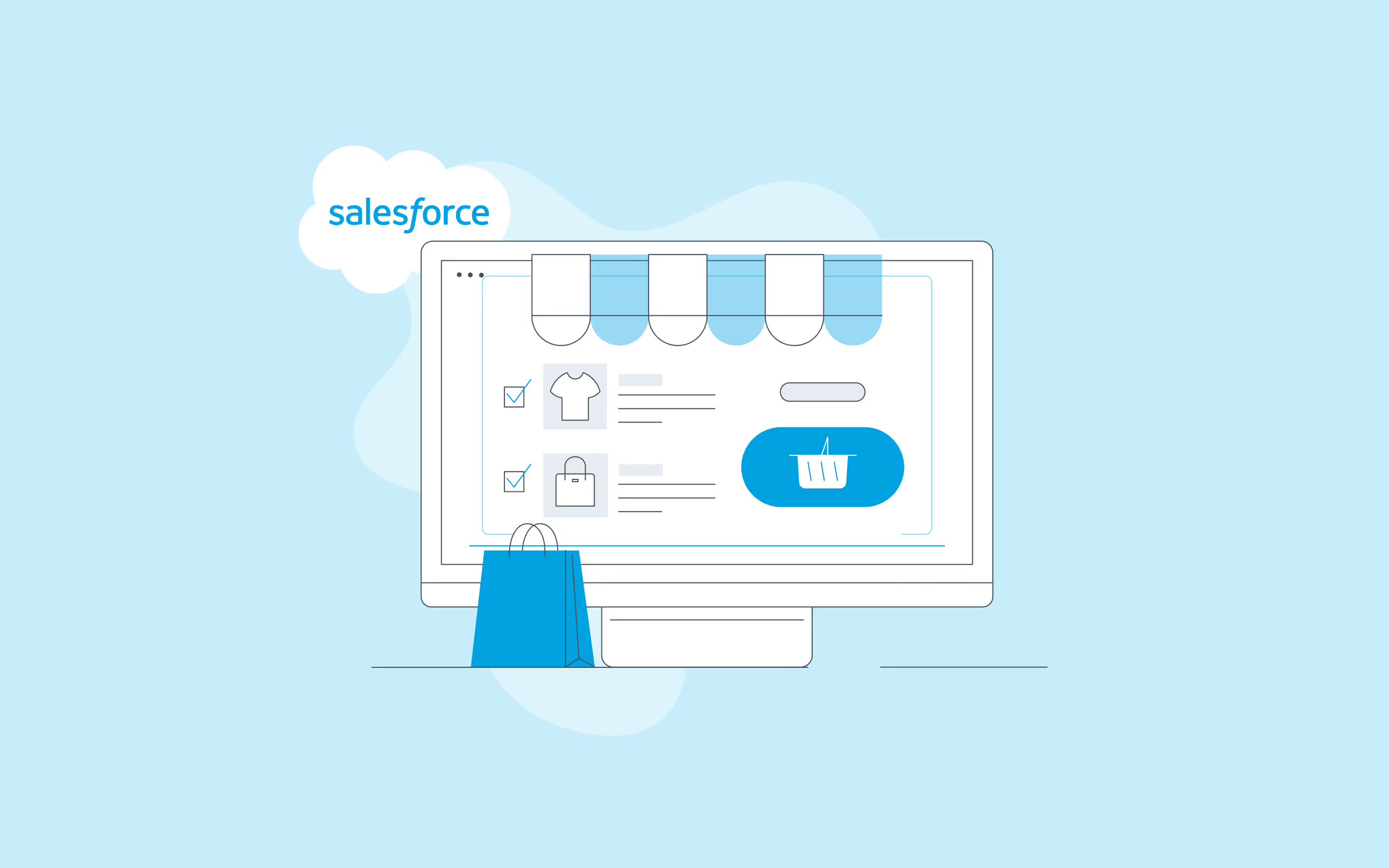

5 min read
•
Composable
•
October 23, 2025
How to Run a Composable Commerce RFP That Actually Works
Most composable RFPs read like procurement theater. This guide breaks down how to structure an RFP that gets you a real partner, not just more paperwork.
There’s a quiet horror to reading most composable RFPs. It’s like walking into a five-star kitchen and finding a microwave lasagna stinking the joint up. All the right ingredients were available, sitting there on the shiny metal counter all bright and colorful and fresh and mise en place. But they sit unused. Something cold and rock solid was instead pulled from the freezer and shoved in for 7 minutes at high power. The result is not going to make anyone happy.
If you're serious about moving to composable commerce, the RFP process is your first real readiness test. Not of technology, but of leadership. It will tell your future partner if you know what you want, how fast you need to move, and whether you're equipped to get there. If you can’t muster the energy to think hard about what you need from a partner and find a way to flush out the right one via rfp, you aren’t yet ready to take on responsibility for a composable infrastructure for your site. Come back in six months when you know why you are doing it and what kind of help you know you will need.
Still here? Then here’s how to make sure your composable rfp doesn’t collapse under its own weight.
Lead with what you want to achieve, not what sounds impressive
If your current ecommerce platform locks marketing out of content, or every page tweak involves a Jira ticket and a prayer, say that. If you're buried in technical debt from years of SiteGenesis bolt-ons, write that down. Don’t posture. Be confessional and realistically ambitious at the same time. Composable is about control. If you're not clear about what you’ve lost control of, you’ll get a partner who confuses real progress to a revenue goal with headless jargon about agility. The question you are asking is “how will composable solve my problems, and who do I feel best understands my problems and has the skills to help”.
Structure it around outcomes, not a wishlist of software
Nobody should be leading with a “composable strategy”. You really don’t have one yet. You have ambitions around agility, around revenue, around the impact of AI, the significance of data. But you do not have a strategy because it is unlikely you understand the realities of composable yet. If you try to turn your limited insight into a strategy right now, you will just be copying someone else’s or making up a very naive one that is all your own. Be patient. Start the journey with a single step in the right general direction.
You are really just looking to see if composable tactics will help you deliver on your revenue or expenditure or organizational strategy. So ask questions that deliver outcomes for those strategies and if composable passes muster as a tactic (which it will), that’s enough for right now.
If what you really want are faster launches, measurable revenue gains, and the ability to test ideas in real time without bringing in a dev team for every update, ask how a composable partner will enable you to achieve this. Show them your team structure. Ask them what they think may change post-launch. Ask them where they think costs could be saved. Ask them where revenue is generated. Give them your uniques, AOV, conversion rates, and ask them to model outcomes that they believe are feasible.
Be Specific
Your RFP should focus on the specifics you care about. I want to improve my bounce rates. I want more engagement around content. I want lower TCO for ecommerce overall. I want my merchants to be able to move faster. If you as a retailer don’t tell me what you are trying to achieve, you let me as a partner off the hook. That gives me room to talk about vague ideas and exaggerate my own awesomeness, or, in other words, completely waste your time.
Can this partner demonstrate that they have delivered what you want before? When they say they promise 20 percent gains in mobile conversion, how and when have they ever achieved that? Can they go live in under 28 weeks on Salesforce Commerce Cloud with a headless CMS and not leave you holding a training manual? How many times have they done that? Can you talk to the last customer they did it for? Those are the right questions; specific and data-driving.
Flush out the soft skills
But you also need questions that flush out the softer skills. You are going to be stuck in the trenches with this company for a while. They better be compatible with your corporate culture and relatable as people. An RFP is of limited value unless you make it specific and relevant to you as a company and a team. If you ask a vendor if they believe in X, they will say yes. If you ask them if they have ever done Y, they will say yes. But if you ask them what challenges arose on two previous composable storefront projects and how their team resolved them, then you will give them a chance to be honest, expose their ability to adapt, and shed some light on how they work with customers like you. You won’t sidestep bullshit entirely, but the more self-aware your questions are, the better.
Disclose your limitations before someone trips on them
A lot of companies go into composable thinking it’s a technology project. It’s not. It’s a shift in how your team works. If you have three front-end developers and no React experience, say that. If you still rely on Page Designer because the CMS is frozen in backlog purgatory, say that too. The right implementation partner can work with that. The wrong one will pretend they didn’t hear it right up until it costs you three extra sprints and a broken launch window.
Insist on real references, real timelines, real names
Every partner has a slide that says “experienced teams.” Fewer have client references you can talk to. Even fewer have those projects live and performing. Ask the implementer what went wrong. Ask the client how long it took to hit break-even. Ask who led the project team as Technical Architect or lead developer. Who was the Business Analyst? Ask if they still work at the company (speak to them later if you can.) Get a warts-and-all picture of the project and encourage self-reflection. If their best case study was led by someone who’s already left the company, it isn’t relevant. Who will really do your project? What projects have they done previously?
Cut the spreadsheet by 90 percent
My best advice is to make the RFP shorter by a lot.
Most of the questions asked in composable RFPs are 1. Pointless. 2. Not helpful. So the answers tend to be pointless and unhelpful. Which is why no one really reads the answers in any detail.
I was on a post-RFP call with a major UK company once. I had spent four days poring through a composable RFP and answering every question in detail. I had a deck of the answers presented nicely that I had sent in advance to allow focus on critical areas rather than fluff. The first question I got from the senior leader in the room was answered on page 16 in 72pt Ariel Bold. I asked the room “Should I assume no one has read the RFP response?”. Silence.
If you make your RFP 100 pages long, no one in your team will read the responses.
Nobody cares whether the vendor supports camelCase or snake_case in their APIs. If your procurement department forces 120 questions into the doc, move the important 10 to the front and ask the rest in a separate optional document that can be completed after initial selection.
You're not selecting a compliance tool. All the jigsaw pieces you could pick for your composable build are fit for purpose. None of the CMSs are terrible choices. None of the Search providers can’t make you money.
But the big difference on the project will be who puts it all together, how well they understand the possibilities, how much experience they have integrating multiple headless tools into a single front end. So focus on that. You’re choosing the team that will help you rebuild the foundation of your digital business. Interview them like humans. Listen for honesty. Prod for expertise. Reward clarity.
You’re trying to make a business faster, leaner, and more competitive. That means picking the partner team with the right kind of scars, the right kind of project approach, and a way of working that helps you (specifically) get things done.
Want a better RFP?
Need help framing the right questions? 64labs has built more composable storefronts on Salesforce Commerce Cloud than anyone. We know what works, what the pitfalls are and where projects can fall short. We want you to succeed; whoever you work with in the end. So let us help you frame your RFP. Free. Gratis. Give us 30 minutes and your top five problems, and we’ll provide you the bones of a viable RFP to select a composable partner that will make you successful.
Read more

September 8, 2025
Composable
Ecommerce
Salesforce
How Long a Composable Storefront Project Should Take - And What It Costs with 64Labs

October 9, 2025
Composable
Ecommerce
What Most People Get Wrong About Headless Commerce

August 8, 2025
Salesforce
Ecommerce
Why Salesforce Commerce Cloud Is Still the Best Enterprise eCommerce Platform
